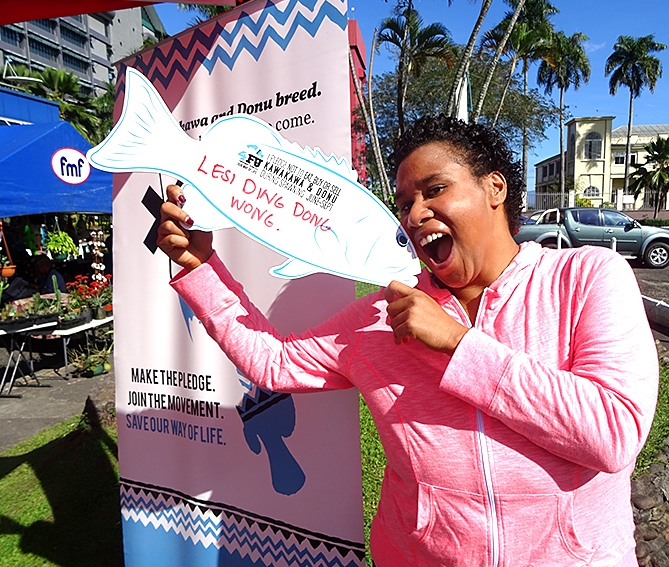NEW YORK, New York – The Fiji government has committed to a seasonal ban on the fishing and sale of kawakawa and donu during its peak breeding months, a measure intended to boost the declining stocks of the high-value fish.
The seasonal ban, which would run June through September, is targeted for 2018.
“These fish are critical to the food security and livelihoods of our people, and with this commitment, we are taking the critical action needed to set our country on a path to revive them and safeguard our future,” said Fiji Fisheries Minister Semi Koroilavesau.
After more than 15,000 people pledged to forego kawakawa and donu during their peak breeding season, the Fiji government is following up with a legal ban to make that pledge the law of the land (and sea).
The seasonal ban is part of the voluntary commitments Fiji made at the Ocean Conference at the United Nations headquarters in New York, which is Fiji is co-hosting with Sweden.
Fiji government also committed to a series of other management measures for kawakawa and donu, including improved collection of fisheries data, monitoring markets for undersize fish, and working with stakeholders to protect the sites across Fiji where the fish breed.
The management of kawakawa and donu, commonly called grouper, will “act as a flagship for sustainable use of valuable inshore fish resources in the Pacific, which have received very little management attention to date in the region,” reads the Fiji submission to the United Nations.
Fiji made the commitment in New York as it worked to elevate the need to improve the management of ocean resources globally.
The Fiji submission stated that kawakawa and donu, commonly called grouper, are particularly vulnerable because they gather predictably each year in the same spots to breed. Those sites are commonly fished heavily, leaving few fish behind to restock Fiji reefs. Of the known breeding site in Fiji, 80 percent are declining or gone, the submission states.
One Fiji study showed a 70 percent decline in grouper landings over 30 years.
The proposed seasonal ban follows more than three years of outreach through the 4FJ campaign, an initiative that aimed to build public support for improved management of kawakawa and donu. The campaign asked the public to voluntarily pledge not to eat, buy or sell the fish during the peak breeding months, June through September.
More than 15,000 have pledge publicly, including a cross-sector coalition of Fiji institutions and individuals, including faith-based organisations and two national supermarket chains.
Scott Radway, founder of cChange, the non-profit that created the campaign for the Fiji Ministry of Fisheries, said when the campaign launched, people asked why the government could not immediately ban fishing of kawakawa and donu, instead of asking for voluntary pledges.
But the government set out to first raise awareness about the decline of these fish and build wide support for the solutions. Three years later, Radway said the government has the support it sought.
“This is a day for celebration for Fiji as the thousands and thousands that have come out to support this 4FJ campaign are seeing their collective voices turn into real change,” Radway said. “We are hopeful that with this meaningful commitment, Fiji will spur more countries to follow suit.”

